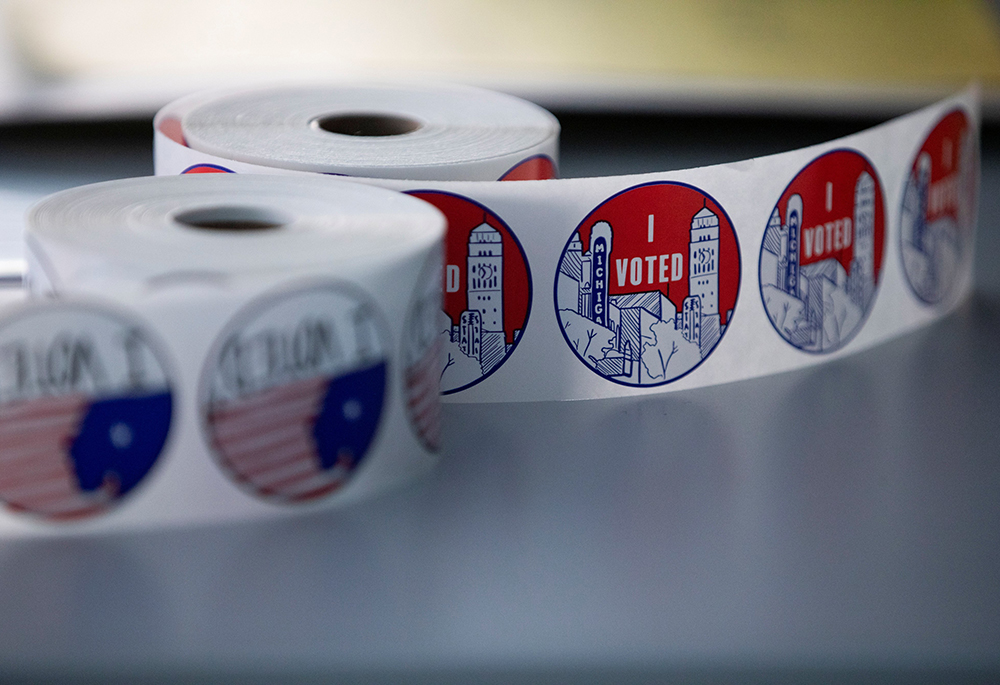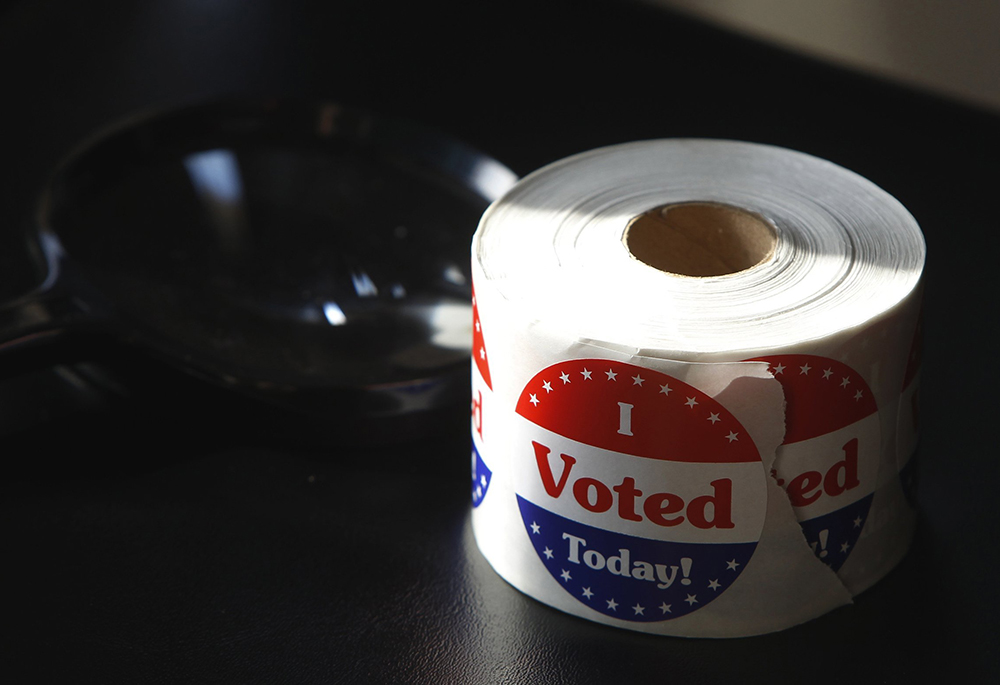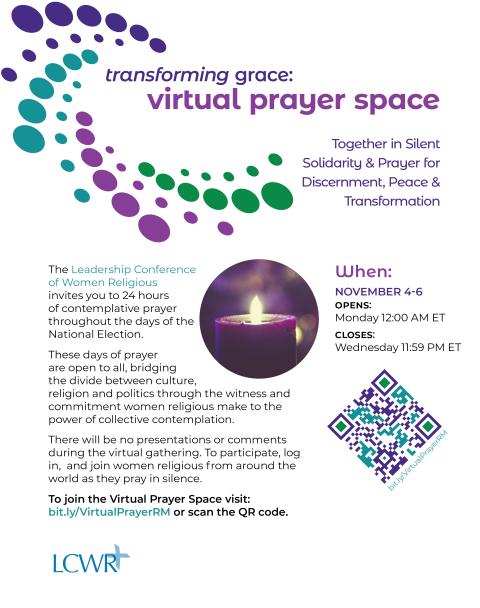
"I Voted" stickers are seen in Ann Arbor, Michigan, Sept. 24, 2020. (OSV News/Retuers/Emily Elconin)
Sr. Cheryl Clemons knows Nov. 5 will be a long day: As an election judge, she has to arrive at her polling place (a 20-minute drive) by 5 a.m. and will have to stay there until at least 7 p.m.
But there's yet another task after that before she's done — one that fills her both with reverence and wonder.
"I get to be one of the two people that take the ballots in," said the Ursuline Sister of Mount St. Joseph, meaning she and another election judge from the polling place will take the thumb drives with the ballots stored on them to the Daviess County Courthouse in Owensboro, Kentucky, and deliver them to the election office.
This will be the third time she has done that job. The entryway at the courthouse opens to a two-story gallery with an arched balcony, a grand staircase and a massive, stained-glass skylight.
"It was such an awesome feeling walking into the courthouse with a bag full of votes," she said. "It was an impressive feeling. Our democracy is not perfect, but it's still amazing to be able to be part of the machinery."
Clemons is just one of many Catholic sisters working on the 2024 general election, as women religious work to educate voters, encourage voter turnout and pray for unity and healing over division.

A file photo shows a roll of "I Voted Today" stickers at a polling station in Washington. (OSV News/Reuters/Gary Cameron)
In Illinois' Sangamon County, Springfield Dominicans Sr. Beth Murphy and Sr. Katherine O'Connor are both election judges; O'Connor in Auburn, about a half-hour away, and Murphy at the Catholic parish where she also votes.
Growing up, the best friend of Murphy's mother was always an election judge, and they would bring her meals because judges are not allowed to leave the polling place.
Fellow Springfield Dominican Sr. Helen Wolf, now deceased, was an election judge for decades, Murphy said, but this will be her first time.
"We have to stay until we go through the whole process," she said. "It will make for a long day, but I'm excited to do it."
Murphy said she has been impressed by the training, the many safeguards and procedures, and the transparency of the election process. In addition to a day of training, she was given a training video to watch just before the election, and a book of rules and procedures that runs to about 40 pages. Each precinct has four election judges, two from each party — even in polling places that serve multiple precincts — and ballots are delivered in a car that must have judges from each party.
"You are as transparent as you can be," Murphy said. "There's never been a whiff of concern about the integrity of the officials in the county."
Advertisement
Another Springfield Dominican, Sr. Marilyn Jean Runkel, works on the Integrated Voter Engagement effort, a proprietary voter turnout process created by the nonprofit Gamaliel. It is especially aimed at reaching historically underrepresented populations.
"They're training people to learn how to get people out to vote," Murphy said. "It's not to push them one way or another, but to encourage them to cast a ballot."
For the Leadership Conference of Women Religious, work on the election began a week after Thanksgiving of 2023, when it became clear how deeply the country is divided.
"It was about who is at our table and how can we have invitational conversations," said LCWR's associate director for transformative justice Sr. Bridget Bearss, a member of the Society of the Sacred Heart. "It's really about this deeper transformation that needs to happen, because it's our neighbors, it's our families."
That led to the creation of Transforming Grace, a contemplative-based program of reflections, prayer spaces, and training to find common ground.
"We built a curriculum of bridge-building," Bearss said. "It's a skillset we need to learn right now. Whatever the results of the election will be, there is healing to be done in this nation."
They created dozens of reflections, many of which were translated into Spanish by the Sisters of Mercy of the Americas, and held online virtual prayer sessions during each party's convention, with another planned for Election Day. [See the graphic at right to view a flyer with more information about the virtual gathering.]
There are no speakers, presentations or comments during the sessions, but more than 200 congregations participated in the first two, Bearss said, with more than 500 unique logins.
"It speaks to peoples' deep desire right now to be together and to join together in this contemplative space," she said. "I like to think about contemplation and action being a single breath, a single movement."
Also hard at work has been the Network social justice lobby, which unveiled its Vote Our Future nonpartisan voter education resources in English and Spanish for anyone interested in how policy issues relate to Catholic values. The materials include a checklist on how to be a multi-issue voter, a presidential candidate comparison, voter action plan checklist, a series on the freedoms people enjoy in a democracy, and a document contrasting Project 2025 with Catholic social justice.
The most visible portion of the campaign was the three-week, nationwide tour by Nuns on the Bus & Friends, which visited 20 cities in 11 states, and wrapped up Oct. 18.
Clemons said being an election judge is not easy, but it is definitely worth it.
"It's really wonderful to watch when youngsters come in and they're excited because it's their first time to vote," she said. "It's both a duty and a privilege."






